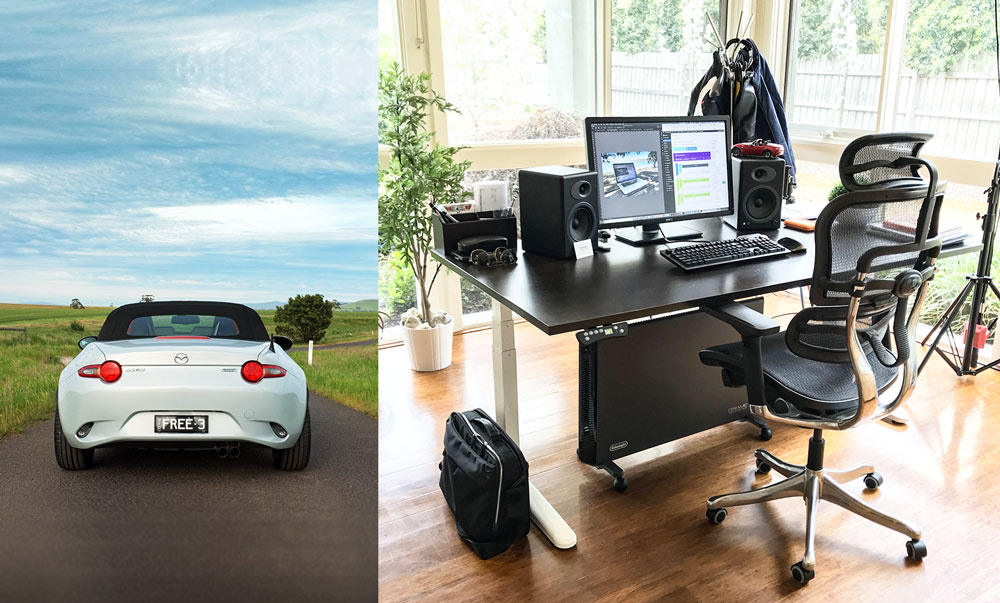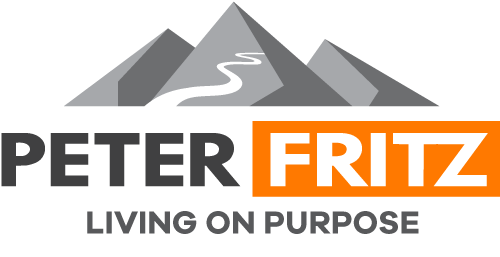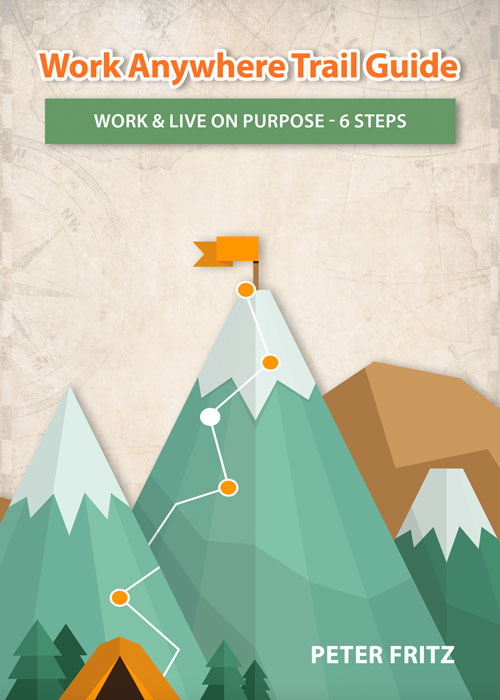

What does it mean to live on Purpose?
How times have changed. It seems that overnight, the world has woken up to the idea that crawling out of bed each morning to throw on a suit, join a motorised procession and sit in a box all day is not living.
While the Internet made it redundant (for many industries) 20 years ago, it required a global pandemic to drive the message home. The world has discovered that when we reimagine what it means to ‘go to work’, everything changes.
- We regain control of our lives and discover the not-so-elusive balance between work and living.
- We can influence how, where and to some extent, when we work. We can shape our environment in ways that fit us, to help us find joy in our work again.
- We can see our families more, reconnect with our community, and experience greater energy and creativity.
- We can open ourselves to the possibilities of freedom, control and purpose.
- We can create a life we’re proud of.
******
This site is the culmination of my 20-plus years as a freelancer, marketer, father, and remote worker.
The idea for it dawned after I wrote two articles for another project called MidlifeTribe. In one, ‘Decisions That Changed my Life’, I said, “I realise now that my work environment is a major contributor to my productivity, happiness and contentment. I could never go back to my old life of suiting up, battling traffic and sitting in an office all day. I feel sick just thinking about it.”
In the other called, ‘How I quit the rat race to work on my terms – without quitting my job.’, I explained how I’d begun questioning the traditional corporate setting and the stories we told ourselves about what it meant to be ‘at work’. Why did we wear suits every day; who were we trying to impress? Why did we speak differently when we entered an office? And why did we have to sit in the same building together every day?
Changing how I work changed my life.
 I can dress however I like because there are no status roles or cultural norms at play. I can shower at midday! Try it and tell me it isn’t awesome. I can play Pink Floyd loud enough to make my glass of water pulsate like that scene from Jurassic Park. I can fart when I like, and if the weather’s sunny, I can pull my convertible out of the garage and go for a drive.
I can dress however I like because there are no status roles or cultural norms at play. I can shower at midday! Try it and tell me it isn’t awesome. I can play Pink Floyd loud enough to make my glass of water pulsate like that scene from Jurassic Park. I can fart when I like, and if the weather’s sunny, I can pull my convertible out of the garage and go for a drive.
It’s the perfect life for someone who loves to work, but hates fluoro lighting, peak-hour traffic and pointless meetings. It satisfies my need to be productive – to do my best work – but in an environment that actually supports it.

Two decades ago, this arrangement was unusual. Today, it isn’t. Many of my colleagues now work from home, too, and plenty of large businesses owe their success to an entirely remote workforce.
Indeed, the Coronavirus has demonstrated how out of touch we’ve been all these years – at least in the corporate sector. Those whose output isn’t linked to their geographical location are getting more done in less time, with less stress, and at a lower cost to themselves and their employers.
Working remotely is fast becoming the new norm because it benefits everyone.
Who benefits, and how?
As employees, we want to reduce stress, recover wasted hours in traffic and meetings, and develop a greater sense of autonomy and purpose in our life. Working from home (or a cafe, a lakeside park, or out on the road) gives us that.
Employers, on the other hand, want engaged team members who enjoy their work; the kind who don’t need to be pushed to perform. They want results and they care less these days about the location of those who deliver them. For each remote worker, there’s one less office/cubicle/desk to provide. And meetings, when necessary, are a Skype, Zoom or Goto Meeting away.
The value equation has shifted to where it needed to be a long time ago, from visibility to productivity.
Other beneficiaries of a remote workforce are the environment and the community at large.
- Sun Microsystems reported that its 24,000 U.S. employees participating in the Open Work Program avoided producing 32,000 metric tons of CO2 last year by driving less often to and from work.
- Office equipment energy consumption rate is twice that of home office equipment energy consumption.
- It reduces traffic jams – every 1% reduction in vehicles yields a three-fold decrease in congestion.
- It prevents traffic accidents – half-time telework, for the portion of the population that holds telework-compatible jobs and wants to work from home, would save thousands of lives and billions a year in direct and indirect costs associated with traffic accidents.
- It takes the pressure off crumbling transportation infrastructure.
- It ensures continuity of operations in the event of a disaster – bird flu, terrorism, roadway problems, and weather-related disasters are all drivers.
- 75% of teleworkers say they could continue to work in the event of a disaster compared with just 28% of non-teleworkers.
Source: Global Workplace Analytics
What it’s Done for Me
For me (and I suspect many of you), the personal payoff is huge. Here’s a taste of my experience:
 I walk my son, Tommy, to and from school every day. We chat about motorbikes, trees, Minecraft and the universe, or whatever he’s into that week. Aside from a dozen stay-at-home mums and a smattering of grandparents, everyone I see in the morning looks rushed and anxious. Their day has just begun and already they’re stressed. After giving my boy a hug, I go for a walk around the neighbourhood. Having worked a couple of hours before he wakes, I can afford a bit of ‘me time’. Sometimes Tommy and I fancy a hot dog after school, so we go to the local corner shops and have one while we watch the world go by.
I walk my son, Tommy, to and from school every day. We chat about motorbikes, trees, Minecraft and the universe, or whatever he’s into that week. Aside from a dozen stay-at-home mums and a smattering of grandparents, everyone I see in the morning looks rushed and anxious. Their day has just begun and already they’re stressed. After giving my boy a hug, I go for a walk around the neighbourhood. Having worked a couple of hours before he wakes, I can afford a bit of ‘me time’. Sometimes Tommy and I fancy a hot dog after school, so we go to the local corner shops and have one while we watch the world go by.- If my kids are sick or need my help, I’m always available.
- I sometimes shower at midday!! Okay, I’m weird, but I love knocking over five or six hours of work before I have a shower. It feels rebellious, which suits me to a T.
- I work where I’m most productive. Usually, that’s my home office, but it’s also my garage, the back deck or a restaurant in the mountains. I hate traditional office settings with their bright lighting, background chatter and endless distractions. And most meetings are a waste of time.
- My office has floor to ceiling windows on two sides, with greenery all around and lots of natural light. My desk is height-adjustable, and a pair of quality speakers emit peaceful or motivating noises, depending on my mood. It’s all set out exactly the way I want it, decorated with family photos and visual cues that get me in the mood to work. It’s my office, and no one can kick me out.
- No one cares if I fart, sing or eat at my desk. My son thinks farts are awesome…
- I can start and finish work pretty much whenever I choose. I know this isn’t possible for everyone, but my point is, I can get cracking on a project at 6:00 am if I want to or do a few extra hours at night – all without leaving home.
- I can access a lot more productive hours each day because I don’t have to suit up, drive to work, park the car or speak to anyone I don’t like. My office is 35 steps away from my bedroom, so I can be up and working in two minutes flat.
- When the sun comes out and the mood strikes, I grab my laptop, jump in the car and head off to a park somewhere. This alone is worth the price of admission. Working outside feels kind of naughty, like skinny dipping. You have the breeze on your face and the sun on the back of your neck while you enjoy the sounds and smells of the great outdoors. And most country parks are empty on weekdays.
It opens new doors.
The industrial revolution gave us many things: factory jobs (of which corporate life is but a cleaner version), cheap goods and technical innovation. It also gave us pollution, consumerism and stress. Despite technological advancements, many of the old issues linger, while new ones continue to emerge.
We worry about income security, so we become married to our job. Our kids hardly see us. It feels like we live to work, and often, the work itself lacks purpose and meaning. We long for change, but we can’t let go of the present.
I describe working from home as ‘the gateway drug to freedom and happiness’. Apart from the obvious benefits of working where you like, it opens the door to other opportunities – many with financial benefits. By quitting the daily rush hour and the stress and exhaustion it creates, you recover precious time and energy to try other things.

Maybe you’re brilliant at what you do and you’d like to offer that expertise to others. Or perhaps you want to explore different aspects of your industry and create products or services around them. Maybe you have a passion for something unrelated.
Once you gain control over how, where and when you work, you can explore other options. This is where the whole work-from-home thing gets exciting.
Money gets you nice things, but autonomy gets you more.
Lock me in a corporate cage on a $300k salary or let me work on my terms for $100k and I’ll take the second option every time. There are lots of reasons, but a big one is this. In traditional corporate life, others determine the rules of the game and the limits of my creative and financial reward. And they can revoke them on a whim.
By working on my terms, there’s no arbitrary limit – only blue skies and oceans.
I don’t want a billion-dollar business, but having multiple revenue streams has changed my life, and working from home has made it all possible. Over the years, I’ve taken the skills I’m good at, combined them with opportunities that fit, and built extra sources of income from them. If one thing goes south, I can always ramp up another. To me, that’s the ultimate form of income security because I have greater control over it.
When the GFC hit, my employer almost went bust and overnight, my income halved. Because I had a couple of side projects on the go (freelancing and property development), I simply devoted more time and energy to those. It was still tough, but I made it through.
Side Hustles
Today, there are lots of opportunities to build a side hustle. But it’s tough to create anything after ten hours away from home each day. You’re exhausted. Your kids need you. Your partner needs you. You have to tidy up, empty the dishwasher, put away clothes, eat and sleep. When do you find the time?
The truth is, doing your ‘normal’ job at home gives you a lot of the benefits you’re seeking – without starting a business.
When I reclaimed my wasted hours in transit, in meetings and aimless distractions, great things happened. I started to get my life back; I recovered more of life’s most precious resource – time. By reclaiming just two hours, five days a week, I gained 520 hours a year, or thirteen working weeks. Thirteen weeks!
This website might be for you…
This website might be for you if you’d like to:
- Work how, where and when you’re happiest and most productive
- Explore new possibilities like consulting, freelancing, or a side business
- Get more control over your stress levels, your finances and your relationships
I help you with:
- Practical strategies to help you work effectively from anywhere
- Stories that’ll inspire you to find your path and climb your mountain
- Real-world advice on improving your finances and reinventing your life
If you feel trapped in your career, constrained in your personal life, worried about the future, stressed, exhausted or overwhelmed, this site is for you.
Here’s to living on purpose!
Start here.
Download the Guide

